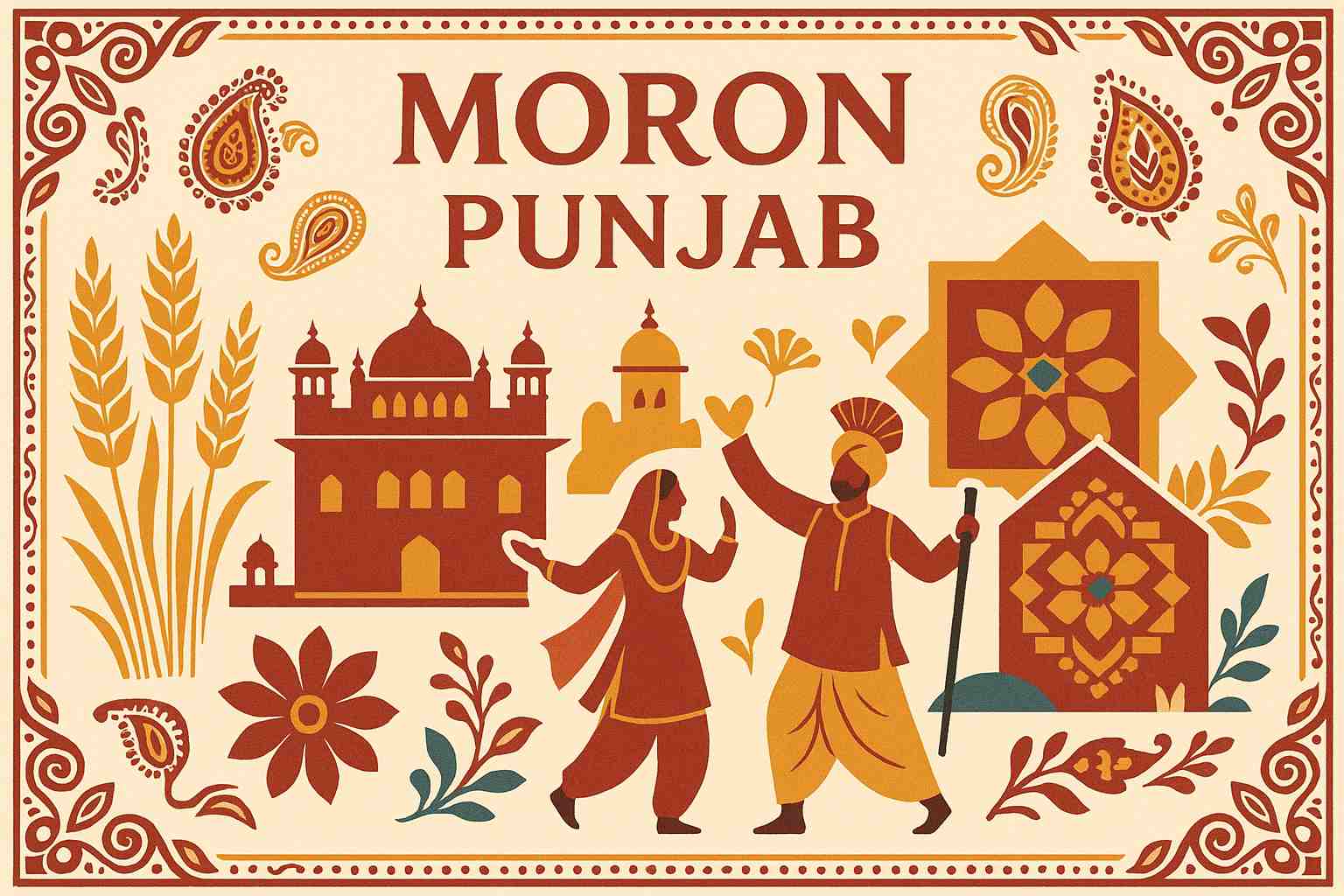
Exploring the Historical and Cultural Context of Moron-Punjab: A 2025 Analysis
Some places aren't just dots on a map; they are living stories, whispered through generations. They exist in the warmth of a shared meal, the rhythm of a folk song, and the strength of their people. One such place is the village of Moron in Punjab's Jalandhar district. Tucked away in the fertile Doaba region, Moron is more than just a village; it's a beautiful chapter in the grand book of Punjabi history, a place where the past breathes alongside the present.
Thinking about Moron takes me back to the stories my grandparents used to tell—stories of villages that were the soul of our country. It’s a place that reminds us that history isn't just about kings and grand battles; it's also about the resilience and spirit of everyday people who build and sustain a culture. Let's take a walk down the lanes of Moron and discover the essence of Punjab that it holds so dearly.
The Echoes of History in Every Corner
To truly understand Moron, you have to listen to the whispers of its past. This is not a place of grand monuments, but its history is rich and profound. Its story gained a significant chapter way back in 1759, when Sardar Salig Singh, a proud Bhangu Jatt chieftain, made Moron his seat of power. For nearly a century, his family's rule shaped the region, leaving an indelible mark on the village's identity.
Like much of Punjab, the village's spiritual fabric is deeply woven with the tenets of Sikhism. The gurdwaras here are not just buildings; they are pillars of the community, symbols of faith and selfless service (seva) that have stood strong through time. The colonial era also left its footprints, influencing architecture and life, and during the freedom struggle, Moron played its own quiet but firm role in India's journey to independence.
A Tapestry of Vibrant Culture and Living Traditions
What makes a visit to a place like Moron so special is the chance to experience its living culture firsthand. The real soul of Punjab is found in its vibrant traditions, and Moron is a beautiful showcase of this.
- Festivals that Bring Everyone Together: When festivals like Vaisakhi and Lohri arrive, the entire village comes alive with an infectious energy. It's a time for families to reconnect, for the air to fill with the sounds of dhol, and for the joyful performances of Bhangra and Giddha to express the pure happiness that defines Punjabi culture.
- The Taste of the Land: Food here is more than just sustenance; it's a celebration of the land's bounty. The simple, soulful pleasure of makki di roti with sarson da saag is something that connects you directly to the agricultural roots of Punjab. It's a taste of home, a taste of tradition.
This commitment to keeping traditions alive is something truly special. It mirrors the spirit seen across India, where communities work to keep their heritage vibrant. Much like the efforts in Rajasthan to maintain its artistic soul, seen in Udaipur's unique craftsmanship and cultural expression, Moron champions its own local folk arts and customs with immense pride.
Moron in 2025: A Bridge Between Yesterday and Tomorrow
As we look at Moron today, we see a community that honours its roots while looking towards the future. The village is a testament to how tradition and progress can coexist harmoniously. The local administration, led by an elected Sarpanch and the Gram Panchayat, is a symbol of resilient grassroots governance, ensuring the well-being of its people.
The community's fabric is diverse and strong, with a significant Scheduled Caste population forming an integral part of its social landscape. Progress is also visible in institutions like the GSSS Moron School, a co-educational secondary school established in 1994, which nurtures the next generation, equipping them with education while keeping them connected to their heritage.
So, what makes Moron's cultural context so unique compared to other places in Punjab? It is this very dedication to preserving age-old customs while adapting to the needs of today. It is a place where you can see historical structures standing tall, telling stories of a time gone by, while life moves forward with hope and resilience.
Why Exploring Our Roots Matters
Discovering places like Moron does more than just tell us about history; it connects us to our own identity. Understanding where we come from gives us strength and a sense of belonging. The stories, rituals, and values passed down in these communities are treasures that guide us. At Bhaktilipi, we believe that this connection to our heritage is profoundly enriching.
We are dedicated to preserving and sharing the timeless devotional literature and stories that form the spiritual backbone of our culture. We reimagine these tales and teachings for today's world, making them accessible and inspiring for everyone. Exploring the history of a village like Moron helps us understand the soil from which these traditions grew. This beautiful task of preserving heritage and living traditions is at the heart of what we do.
If these stories of faith, culture, and history resonate with you, we invite you to join our community. Let's explore the spiritual heritage of India together.
Stay connected with us for more inspiring content:
- Facebook: BhaktilipiOfficial
- Instagram: bhakti_lipi
- YouTube: Bhaktilipi Channel
Subscribe to our newsletter on Bhaktilipi.in for regular updates on devotional literature, inspiring stories, and cultural insights that connect you to your roots.
A passionate group of people dedicated to preserving India's knowledge of Dharma, Karma, and Bhakti for ourselves and the world 🙏.
